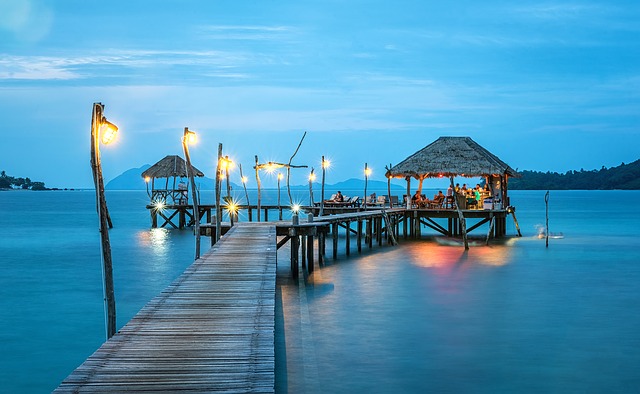A digital marketing strategy is the path to profitability. Optimum7 can help you set the right goals, offer and implement creative and technical strategies, and use data and analytics to review and improve your business’s performance.
The design of a hotel website has a huge impact on how easy it is for a user to determine its location, favorable reviews, and reasonable rates. This user experience comes down to the design. Designing websites based on their industry is a necessary procedure to appeal to your target audience and make sales. Optimum7’s experience extends to custom-built software and functionalities to fit your specific needs. Here is an overview of what the basics are when it comes to web design for hotels and resorts.
Web design is an umbrella term that covers a variety of different services we offer. We’ve been building custom, strategic websites for companies small and large for over 15 years. When it comes to web design, our developers, programmers, and designers are ready to bring your vision to life.
Our web design services include:
…and more. Ready to start talking about your website? Reach out to one of our experts below to get the conversation started.
Speak to an Expert
When somebody visits a site, what action do you want them to take?
Calls to Action does not mean you have to have a big sales button on every page. While buttons and colors can be effective ways to lead your customer down the sales funnel, also consider how the role of persuasive copy paints a picture, beckoning the user to your hotel as if it were their own idea.
As previously mentioned, you don’t have to try and make a sale on every page. You can take your site visitor through a journey of discovery as they go from learning about your business, to the amenities you offer, to trust-building elements such as reviews before they make a purchase decision.
Pretty pictures mean nothing if a user is lost on your website. Clear headers that identify your most important features will differentiate you from the competition. Be concise in your directions to avoid confusion. Don’t test your user’s patience with cutesy words that fit your motif – instead be straightforward with what is commonly expected and let your aesthetic do the talking.
Site navigation is a factor that falls into User Experience (UX). Not being able to find the information you want easily is frustrating for visitors to your site and could cause them to leave your site. Having a good user experience helps you convert users at a higher rate and builds trust.
Average Increase in Website Traffic
+97%Average Increase in Conversion Rates
+52%Monthly Total Leads Generated
3,000+We become an indispensable resource for our clients to drive traffic and leads.

There are numerous apps for hotels and resorts that will list your accommodations, sometimes even without your knowledge. Be ready a user to click through to your website on mobile with integrated API to assist with their questions, a booking system that is reliable and fast, and design that is optimized for different screen sizes. At Optimum7, we specialize in platform integration with marketplaces, as each one has unique features and processes that take a lot of time to get right.
As your services or offerings change, you may be tempted to delete a page in favor of starting over. While that works for most things in life, it’s seriously damaging to your established website authority to suddenly delete pages without a 301 redirect to the most relevant page. It’s tricky business if you don’t know how to do this properly but with expert help, your website’s ranking in Google won’t be affected, allowing for change to proceed unscathed.
With all else that has been said, it should be obvious that copy needs to be concise and persuasive, yet you wouldn’t believe how often hotels and resorts are eager to advertise every prominent feature resulting in paragraphs that users lose interest in. For longer form content that expands on a hotel feature or nearby attraction, create a blog and keep it off your homepage and service pages. Blogs help with SEO and keyword density so that related search terms will bring users to your site.
A digital marketing strategy is the path to profitability. Optimum7 can help you set the right goals, offer and implement creative and technical strategies, and use data and analytics to review and improve your business’s performance.